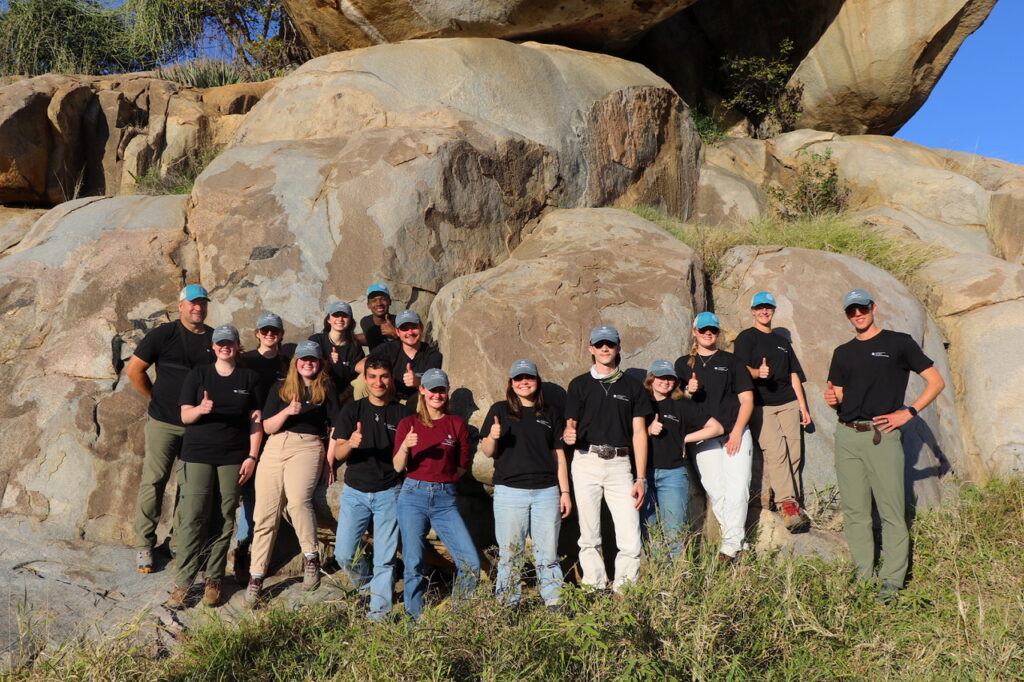
B.S. in Ecology and Conservation Biology
The Department of Ecology and Conservation Biology (ECCB) provides one of the most advanced educational opportunities available to prepare undergraduate students for leadership in the science and stewardship of terrestrial and aquatic ecosystems.
Four tracks are offered (Ecology and Conservation Biology, Ecoinformatics, Forest Resources, and Vertebrate Zoology) to provide flexibility in preparing for a given career path.
Admissions
Students in this major will emphasize acquisition of fundamental ecological knowledge and its application to biodiversity conservation, environmental health, and the management of complex systems, such as interactions involving aspects of ecology from genes to ecosystems, landscapes, hydrology, and climate.
Applications for the B.S. in Ecology and Conservation Biology degree are processed through the main admissions portal at Texas A&M University. Choose your path below to learn more about the admissions process and requirements.
Ecology and Conservation Biology Program Details
- Degree: B.S. Ecology and Conservation Biology
- Credit Hours: 120 total credit hours
- View course descriptions in the Undergraduate Catalog
Ecology and Conservation Biology Degree Tracks
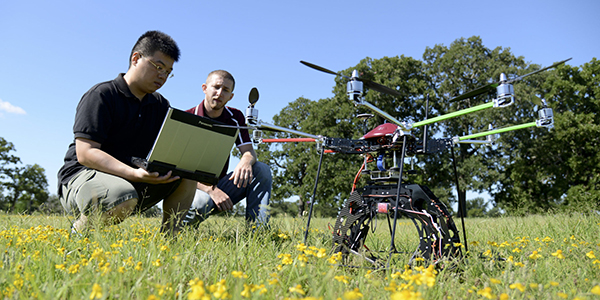
Ecoinformatics
The Ecoinformatics track trains students to integrate digital and information technologies with ecological data analysis to detect, evaluate and predict ecological patterns, disturbances and processes.
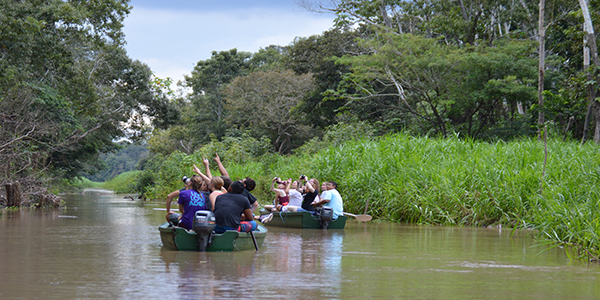
Ecology and Conservation Biology
The Ecology and Conservation Biology track teaches students the fundamentals of ecology and evolution and how to understand issues related to conserving, managing and restoring species, habitats, and ecosystems.
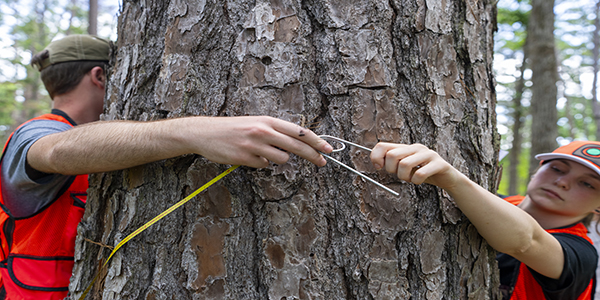
Forest Resources
The Forest Resources track prepares students for a broad array of career opportunities or graduate studies in forestry, natural resources, conservation and environmental-related fields.
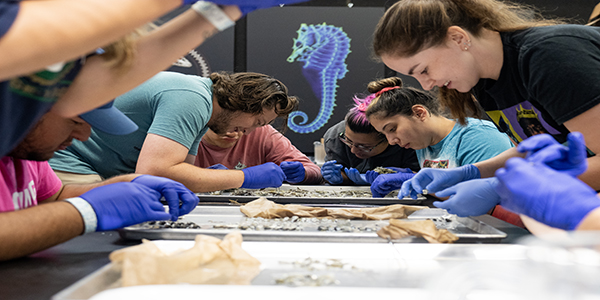
Vertebrate Zoology (Pre-Vet)
The Vertebrate Zoology track is for students with a deep interest in vertebrates, their diversity, ecology, and conservation, and satisfies all prerequisite requirements for veterinary school.
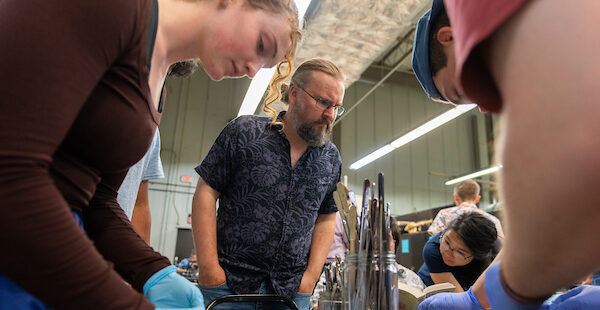
Teaching Track
The Teaching Track in Ecology and Conservation Biology trains future secondary school teachers in the life sciences.
Career Options in Ecology and Conservation Biology
The breadth and depth of training student receives prepares graduates for careers in academia, natural resource agencies, high school teacher, non-governmental organizations involved in conservation, environmental consulting and related professions. The Vertebrate Zoology track also will prepare students for postgraduate training in veterinary programs.

New Faces, New Ideas
Claire Legaspi, class of 2025, recently published her first research article. As a sophomore pursuing a B.S. in Ecology and Conservation Biology, Claire’s research on living shorelines focuses on making a difference in restoring vital aquatic habitats.
“Even though I’ve only been in ECCB for a few months, I’ve had the opportunity to work with faculty who are experts in a number of fields ranging from broad inclusive topics to fascinating niche focuses.
These faculty members are not only passionate about their areas of expertise but are also open to new ideas and techniques and encourage students to utilize the latest tools and resources to learn more about these important topics.”
Claire Legaspi ’25
Ecology and Conservation Biology Major

New Faces, New Ideas
Claire Legaspi, class of 2025, recently published her first research article. As a sophomore pursuing a B.S. in Ecology and Conservation Biology, Claire’s research on living shorelines focuses on making a difference in restoring vital aquatic habitats.
“Even though I’ve only been in ECCB for a few months, I’ve had the opportunity to work with faculty who are experts in a number of fields ranging from broad inclusive topics to fascinating niche focuses.
These faculty members are not only passionate about their areas of expertise but are also open to new ideas and techniques and encourage students to utilize the latest tools and resources to learn more about these important topics.”
Claire Legaspi ’25
Ecology and Conservation Biology Major
Ecology and Conservation Biology News

Passion for conservation drives student’s impactful initiatives in the community
Skyler Nix, a sophomore in the Texas A&M College of Agriculture and Life Sciences Department of Ecology and Conservation Biology, is a passionate advocate for conservation and biodiversity.
Have Questions?
For degrees or admissions questions:
For general questions: